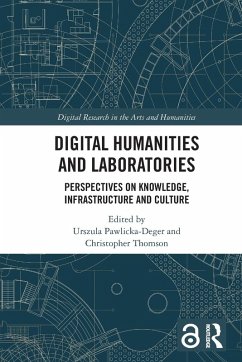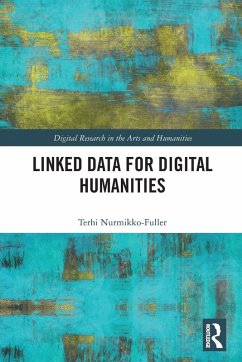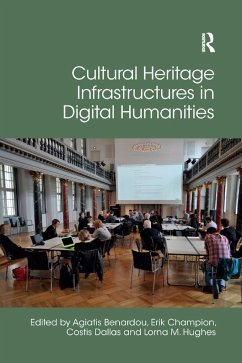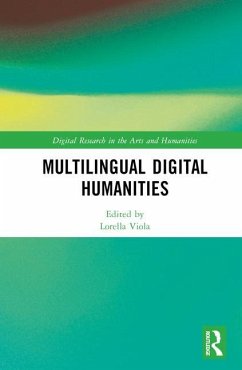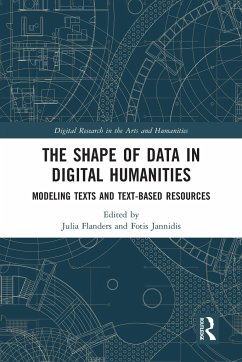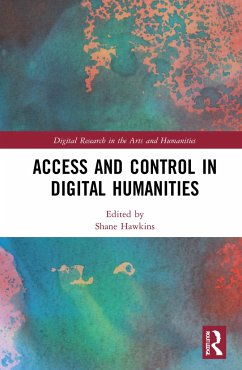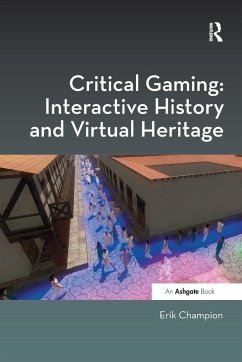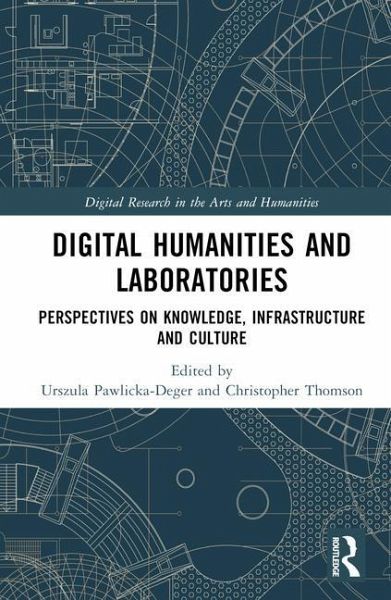
Digital Humanities and Laboratories
Perspectives on Knowledge, Infrastructure and Culture
Herausgegeben: Pawlicka-Deger, Urszula; Thomson, Christopher
Versandkostenfrei!
Versandfertig in 6-10 Tagen
154,99 €
inkl. MwSt.
Weitere Ausgaben:

PAYBACK Punkte
77 °P sammeln!
Digital Humanities and Laboratories explores laboratories dedicated to the study of digital humanities (DH) in a global context and contributes to the expanding body of knowledge about situated DH knowledge production.Including a foreword by David Berry and contributions from a diverse, international range of scholars and practitioners, this volume examines the ways laboratories of all kinds contribute to digital research and pedagogy. Acknowledging that they are emerging amid varied cultural and scientific traditions, the volume considers how they lead to the specification of digital humaniti...
Digital Humanities and Laboratories explores laboratories dedicated to the study of digital humanities (DH) in a global context and contributes to the expanding body of knowledge about situated DH knowledge production.
Including a foreword by David Berry and contributions from a diverse, international range of scholars and practitioners, this volume examines the ways laboratories of all kinds contribute to digital research and pedagogy. Acknowledging that they are emerging amid varied cultural and scientific traditions, the volume considers how they lead to the specification of digital humanities and how a locally situated knowledge production is embedded in the global infrastructure system. As a whole, the book consolidates the discussion on the role of the laboratory in DH and brings digital humanists into the interdisciplinary debate concerning the notion of a laboratory as a critical site in the generation of experimental knowledge. Positioning the discussion in relation to ongoing debates in DH, the volume argues that laboratory studies are in an excellent position to capitalize on the theories and knowledge developed in the DH field and open up new research inquiries.
Digital Humanities and Laboratories clearly demonstrates that the laboratory is a key site for theoretical and critical analyses of digital humanities and will thus be of interest to scholars, students and practitioners engaged in the study of DH, culture, media, heritage and infrastructure.
Including a foreword by David Berry and contributions from a diverse, international range of scholars and practitioners, this volume examines the ways laboratories of all kinds contribute to digital research and pedagogy. Acknowledging that they are emerging amid varied cultural and scientific traditions, the volume considers how they lead to the specification of digital humanities and how a locally situated knowledge production is embedded in the global infrastructure system. As a whole, the book consolidates the discussion on the role of the laboratory in DH and brings digital humanists into the interdisciplinary debate concerning the notion of a laboratory as a critical site in the generation of experimental knowledge. Positioning the discussion in relation to ongoing debates in DH, the volume argues that laboratory studies are in an excellent position to capitalize on the theories and knowledge developed in the DH field and open up new research inquiries.
Digital Humanities and Laboratories clearly demonstrates that the laboratory is a key site for theoretical and critical analyses of digital humanities and will thus be of interest to scholars, students and practitioners engaged in the study of DH, culture, media, heritage and infrastructure.





